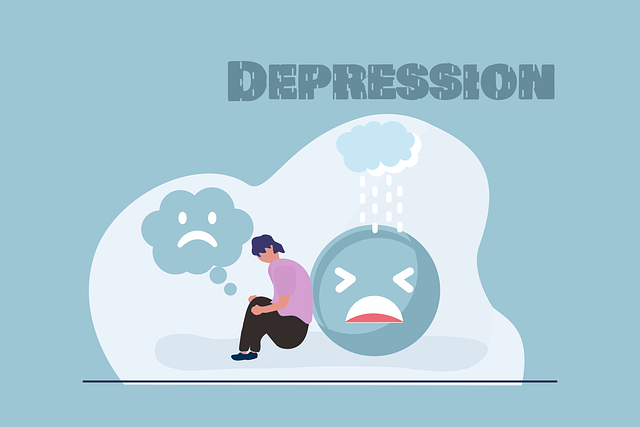Mental health policies like Broomfield Crisis Counseling Therapy (BCCT) play a pivotal role in supporting individuals during psychological crises, offering structured early intervention and diverse therapeutic techniques. However, gaps exist, especially in addressing diverse populations' needs for culturally sensitive crisis intervention. These shortcomings are evident in BCCT's limitations, highlighting areas needing optimization. Effective advocacy strategies include raising awareness, engaging policymakers, sharing research-backed information, and fostering open dialogues. Success is measured through KPIs like improved access to quality crisis counseling (e.g., BCCT), enhanced coping skills, and resilience building, with continuous improvements guided by patient feedback.
Mental health policy is a critical component of ensuring accessible, effective, and equitable care. This article provides a comprehensive analysis of mental health policy, utilizing the Broomfield Crisis Counseling Therapy Framework as a lens. We assess current policies, identify gaps, and explore advocacy strategies for change. Key topics include understanding crisis counseling, evaluating policy impact, implementing successful advocacy tactics, and measuring improvements. By leveraging evidence-based approaches like the Broomfield model, we can drive meaningful mental health policy reforms.
- Understanding Mental Health Policy: The Broomfield Crisis Counseling Therapy Framework
- Assessing the Impact and Gaps in Current Policies
- Advocacy Strategies for Effective Mental Health Policy Change
- Measuring Success and Continuous Improvement in Mental Health Advocacy
Understanding Mental Health Policy: The Broomfield Crisis Counseling Therapy Framework

Mental health policies play a pivotal role in shaping support systems for individuals struggling with various psychological challenges. Understanding these policies and their underlying frameworks is essential to advocate for effective interventions. One such influential model is the Broomfield Crisis Counseling Therapy (BCCT), which offers a structured approach to addressing mental health crises. This framework emphasizes the importance of early intervention, focusing on immediate relief and long-term recovery strategies.
The BCCT model encourages a holistic view of an individual’s well-being by integrating various therapeutic techniques. It promotes positive thinking and mood management as key components of recovery, while also recognizing the significance of stress management in mental health care. By adopting this approach, policymakers can ensure that crisis counseling services are accessible and tailored to meet diverse needs, ultimately fostering a more supportive environment for those facing mental health challenges.
Assessing the Impact and Gaps in Current Policies

In assessing the current landscape of mental health policies, it’s evident that while significant strides have been made, there are still gaps requiring urgent attention. The effectiveness of services like Broomfield Crisis Counseling Therapy highlights areas where interventions can be optimized. Many existing policies struggle to adequately address the needs of diverse populations, particularly in providing accessible and culturally sensitive crisis intervention guidance. This becomes especially critical when considering the rising rates of anxiety and other mental health disorders.
The impact of these policies is often limited by a lack of integration between various services, leading to gaps in care that can exacerbate existing challenges. Enhancing anxiety relief measures and ensuring continuity of care post-crisis intervention are crucial areas for advocacy. By examining these shortcomings, policymakers can develop more comprehensive strategies that foster better mental well-being outcomes.
Advocacy Strategies for Effective Mental Health Policy Change

Advocacy plays a pivotal role in driving policy changes that can significantly impact access to and quality of mental health services, such as those offered by Broomfield Crisis Counseling Therapy. Effective advocacy strategies for mental health policy change involve raising awareness about existing issues and gaps in care through various communication channels. This includes leveraging social media, organizing community events, and engaging with policymakers directly. By disseminating research-backed information on best practices, Stress Reduction Methods, and successful case studies, advocates can build a compelling narrative that drives legislative action.
Moreover, employing Conflict Resolution Techniques and fostering open dialogue among stakeholders—including healthcare providers, patients, families, and policy makers—is crucial. Collaborative approaches, such as roundtable discussions and public forums, facilitate the exchange of diverse perspectives, ultimately leading to more inclusive and effective policies. By integrating Communication Strategies that promote empathy and understanding, advocates can bridge divides, dispel myths, and cultivate a collective commitment to improving mental health outcomes for all.
Measuring Success and Continuous Improvement in Mental Health Advocacy

Measuring success in mental health advocacy is a multifaceted endeavor. It involves evaluating both qualitative and quantitative outcomes to ensure that interventions are effectively addressing the needs of individuals and communities. Key performance indicators (KPIs) should include improved access to quality crisis counseling therapy, such as that provided by Broomfield Crisis Counseling Therapy, alongside enhanced coping skills development and resilience building. These metrics allow advocates to track progress and identify areas for improvement.
Continuous improvement necessitates a feedback loop where data on patient satisfaction, treatment efficacy, and service utilization informs policy adjustments. By regularly assessing these factors, mental health advocacy organizations can refine their strategies, ensuring they remain aligned with the evolving needs of those they serve. This iterative process fosters better outcomes, ultimately promoting holistic well-being within the community.
The article has explored a comprehensive approach to mental health policy analysis and advocacy, highlighting the importance of understanding existing frameworks like the Broomfield Crisis Counseling Therapy. By assessing the impact and gaps in current policies, we can identify areas for improvement. Effective advocacy strategies, coupled with robust measurement tools, ensure continuous progress in mental health care. Integrating these insights is vital for creating a more supportive and accessible environment for those seeking mental wellness, ultimately revolutionizing how societies address psychological well-being.














